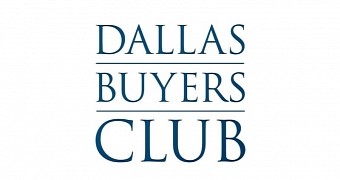Since Australia is such a big hub for piracy, copyright owners have been gunning for the country’s residents for years. Now, the studio behind “Dallas Buyers Club,” a movie that won big at the Oscars this year, wants cash payments from local pirates.
Voltage Pictures, the studio behind the film, has been hunting down pirates for many months. Much to its despair, in early January 2013, a restricted DVD screener of the film leaked online. Those who were eager to see Mathew McConaughey and Jared Leto, who both later won Oscars for actor in leading and supporting role, respectively, hurried to download the film.
TorrentFreak reports that in a lawsuit that was filed in the Southern District of Texas, Voltage is seeking to identify illegal downloaders of the movie by providing the IP addresses of Internet subscribers. They basically want to adopt the bullying stance so many others have before them by threatening to take these people to court unless they agree to a financial settlement.
While this isn’t exactly news for the American playground, it’s a surprise that Voltage wants to take its tactic to Australia. The company has chosen to target subscribers of iiNet, an Internet Service Provider that doesn’t really like taking orders and who will actually fight for its clients.
This particular ISP has actually managed to defeat Hollywood studios in a long-running piracy battle back in 2012 and it has every intention of fighting against them once again.
The ISP list is a bit longer, however. Wideband Networks Pty Ltd, Internode Pty Ltd, Dodo Services Pty Ltd, Amnet Broadband Pty Ltd and Adam Internet Pty Ltd are also on the list.
iiNet says it smells something fishy about the deal
Steve Dalby, chief regulatory officer for iiNet, said that Dallas Buyers Club LLC recently applied to the Federal Court to have all these ISPs reveal the identities of the people on the pirate list.
“iiNet would never disclose customer details to a third party, such as movie studios, unless ordered to do so by a court. We take seriously both our customers’ privacy and our legal obligations,” Dalby said.
He considers that it might seem reasonable for movie studios to ask for such information, but this would only make sense if they intended to use the data fairly, including by allowing the alleged infringers to show up in court, to argue their case.
“In this case, we have serious concerns about Dallas Buyers Club’s intentions. We are concerned that our customers will be unfairly targeted to settle any claims out of court using a practice called ‘speculative invoicing,’” he added.

 14 DAY TRIAL //
14 DAY TRIAL //